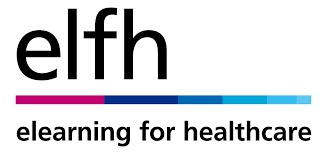
National Bundle of Care for Children and Young People with Asthma programme
Asthma (Children)
NHS England’s ambition is to reduce avoidable harm to children and young people with asthma and improve their quality of life. This will be achieved by taking a whole system approach to asthma management that includes addressing environmental triggers, a comprehensive education programme, promoting personalised care, effective preventative medicine, and improved accuracy of diagnosis.
NHS England have been working with key stakeholders, including young people and their families, to develop a National Bundle of Care for Children and Young People with Asthma to support local systems with the management of asthma care. The programme sets out the blueprint of evidence-based interventions to help children, young people, families, and carers, to control and reduce the risk of asthma attacks and to prevent avoidable harm. The bundle outlines key standards in the care of CYP with asthma throughout every stage of the patient pathway.
A key element to ensure children and young people with asthma receive high standards of asthma care, is relevant training for professionals. One of the outputs of the training, education and competencies national working group has been the development of a capability framework.
The National Capability Framework for the care of children and young people with asthma
This framework has been developed to allow individuals, employers, and integrated care systems to be aware of the skills and knowledge that are required to ensure they can safely care for a child and young person with asthma. The framework is aimed at both health and non-healthcare professionals across all aspects of a child’s life, including childcare providers, education providers, uniformed services, sports coaches, social services and health care workers.
The newly updated framework was developed by NHS England in collaboration with key stakeholders including CYP and their families, national experts and arm’s length bodies such as Royal Colleges, and professional bodies. Current national guidelines and recommendations were incorporated including the British Thoracic Society/Scottish Intercollegiate Guideline Network (BTS/SIGN) national asthma guidelines, Global Initiative for Asthma (GINA), and the joint NICE/BTS/SIGN asthma guidelines updated in November 2024, the National Review of Asthma Deaths (NRAD) report, the National Respiratory Audit Programme (NRAP), the Healthcare Safety Investigation Branch (HSIB) investigation into childhood asthma report and the National Child Mortality Database report and recommendations.
The framework divides different roles into 5 ‘tiers’. A tier describes the level of care a person may be expected to deliver to a child or young person with asthma. The more involved the care, the higher the level of tier.
The tiers are not profession specific but rather describe the minimum required knowledge and skills any individual must possess to safely carry out their role in caring for a child or young person with asthma. Individuals should look at their own role and choose the tier most appropriate to the care they deliver.
National Capabilities framework
NOTE: It is assumed that for healthcare professionals undertaking the training they will already have appropriate training and skills relevant in the care of children and young people. These courses are to provide additional training specifically relating to asthma and should sit alongside appropriate frameworks of training, supervision and mentoring as required.
Asthma (Children and young people) - elearning for healthcare